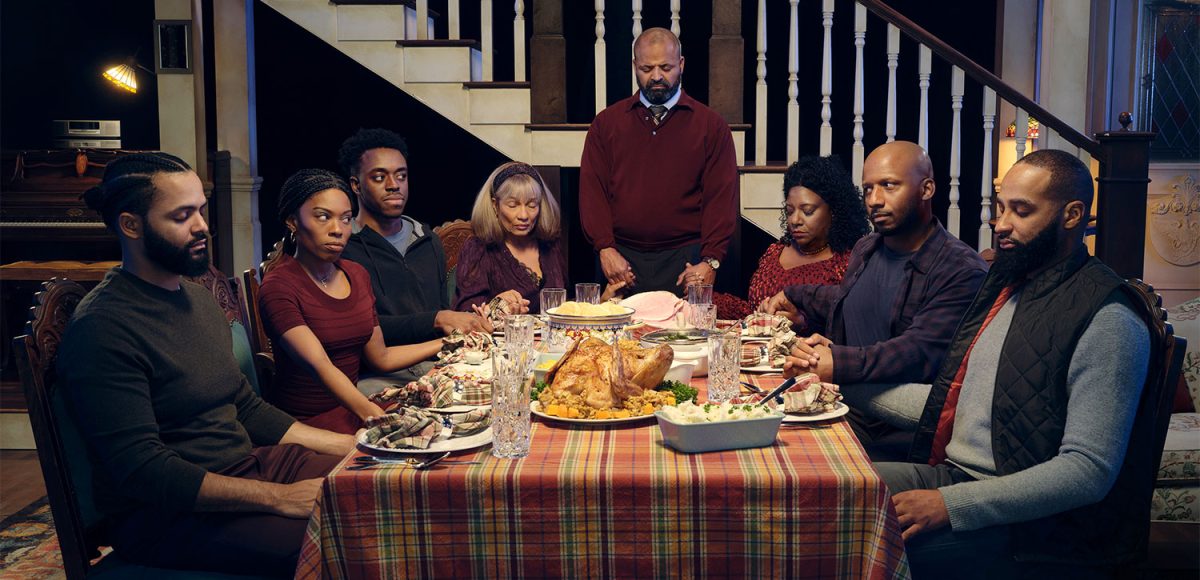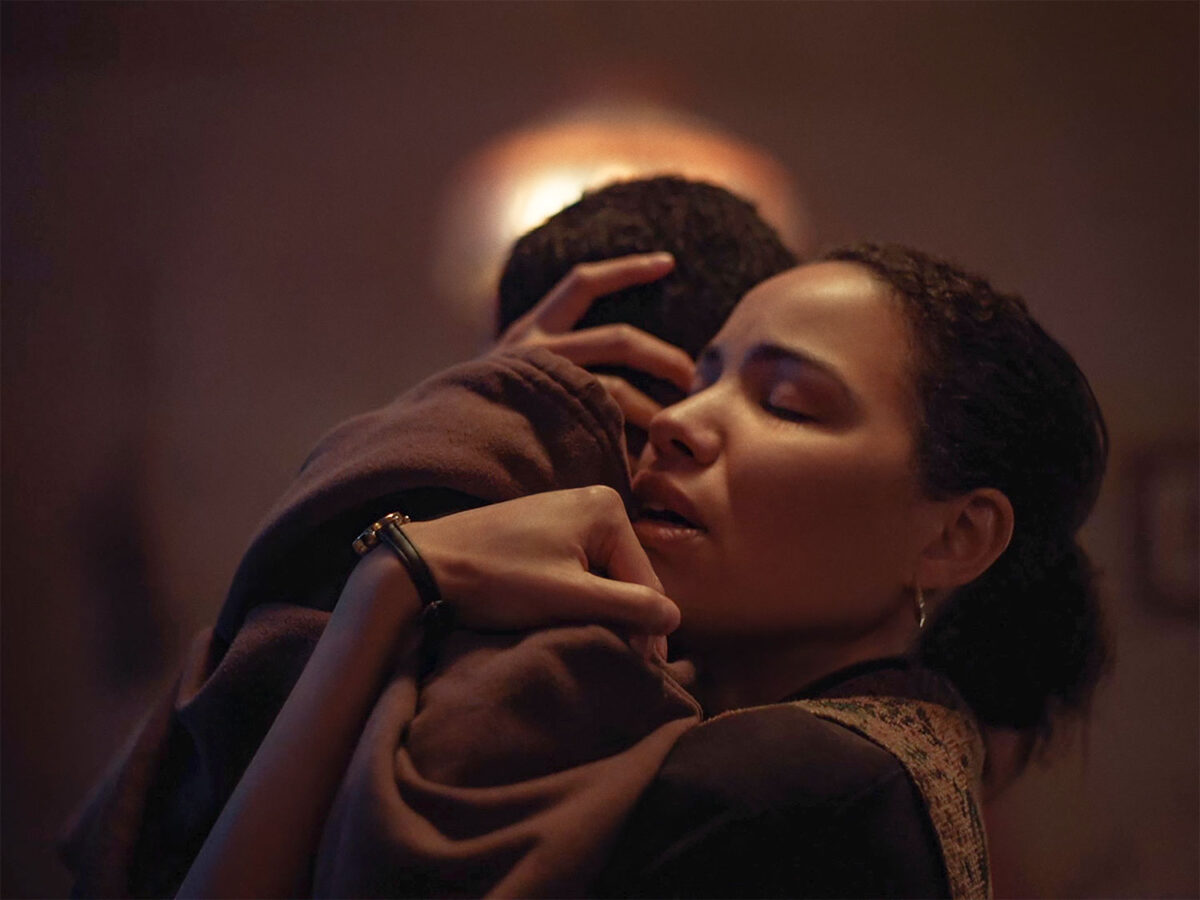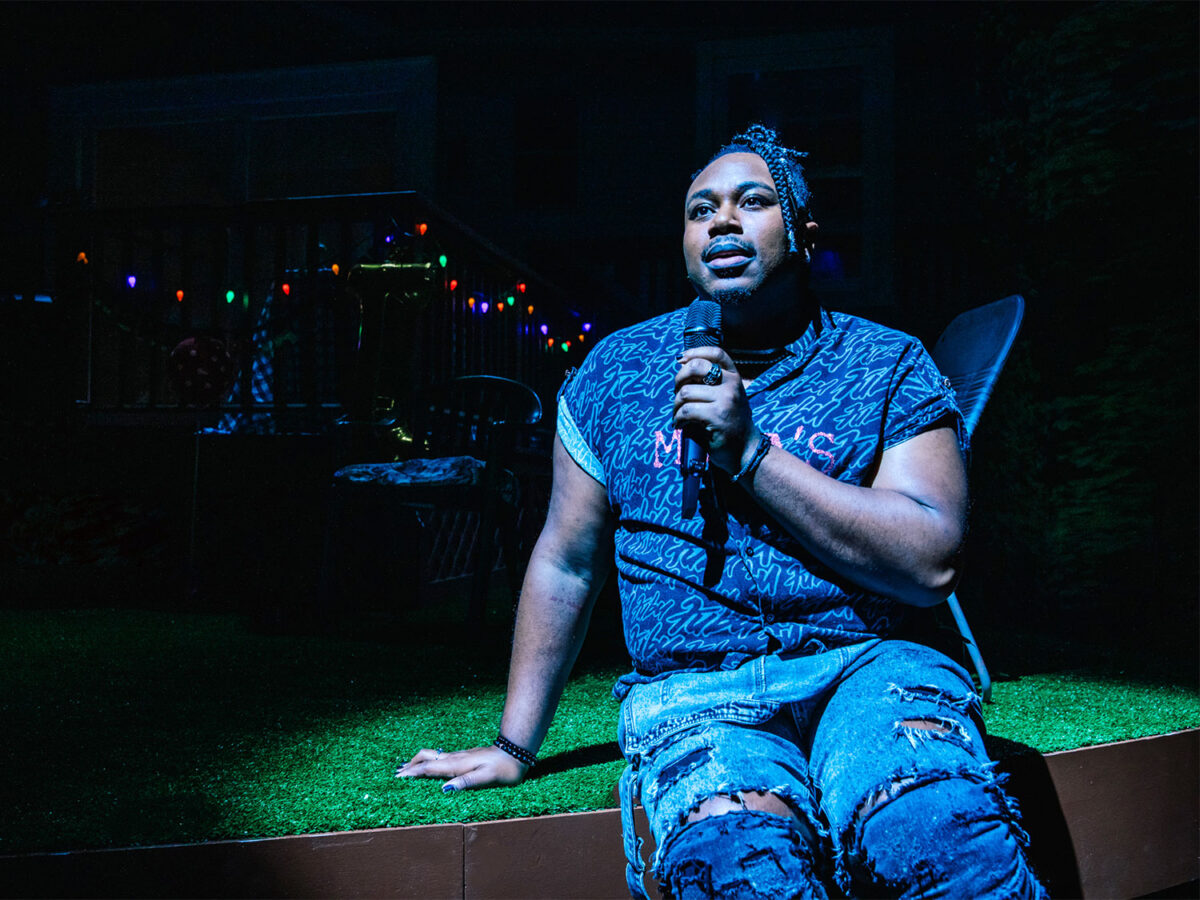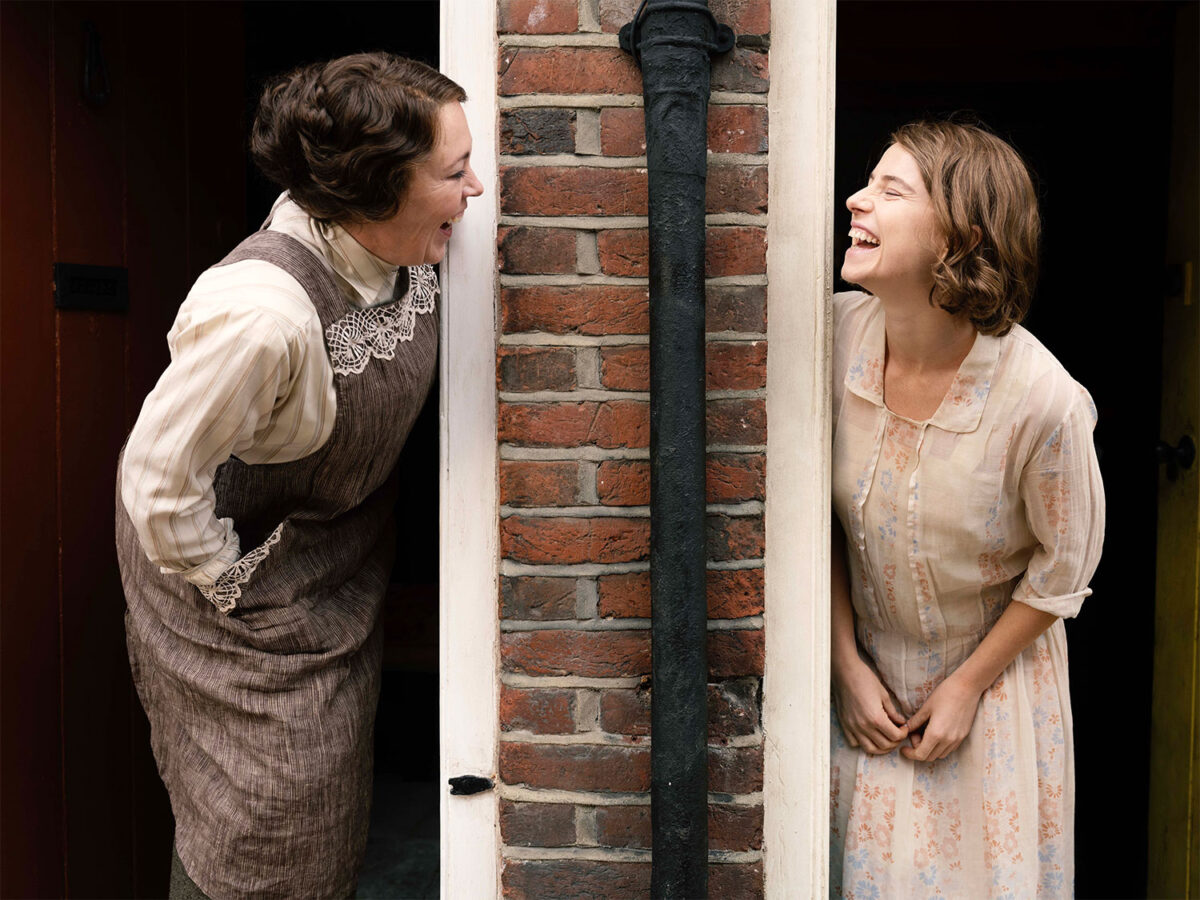Get thee to the Geffen Playhouse and get there before March 5. “The First Deep Breath” is a major play that analyzes what it means to be alone within a family unit in many of the same ways explored by August Wilson, Tracy Letts and Eugene O’Neil. Make no mistake, Lee Edward Colston II is an important playwright to contend with.
Opening on a sermon by Pastor Albert Melvin Jones III, the fire and brimstone he spouts is tempered by the sadness of major loss, the death of his beloved daughter Diane. So focused is he on this daughter that it takes quite a while before we realize that she was survived by her identical twin Dee-Dee. In the pulpit he is king; he maintains that attitude at home. But the Jones household is complicated. Ruth, his wife, is in the midst of advancing Alzheimer’s, cared for by her sister Pearl who now lives with them. Son AJ is a senior in high school, a student with promise and the possibility of going to an Ivy on full scholarship if, and it’s a big if, he agrees to study religion with a goal toward succeeding his father at the church. Covering his feelings well, we soon learn that this is far from his dream, something he confides only to Tyree, his older brother’s best friend. And that older brother? Albert Melvin Jones IV is about to be released from prison, having served a sentence of six years for rape. Filling out the “family” unit is Leslie Carter, Dee-Dee’s devoted boyfriend who dotes on her every word and can’t understand why she won’t marry him.

Layering the Tyrone family drama in “Long Day’s Journey into Night” with the difficulties of growing up Black in urban Philadelphia, the Joneses are a psychoanalytic study unto themselves. Tensions run high in the Jones’ household but the simmering will soon boil over when Albert IV, now preferring to be called Abdul-Malik, arrives. Feared, reviled, ridiculed, there is very little place for this ex-con and his new name. His crime hangs over his head like an anvil waiting to crash down at an inopportune moment, and all the moments with Albert IV are inopportune. Unwanted and unemployable, his status as pariah in his own home has become a new prison for him.
Everyone in this family has a secret, some have more than one, but the cloud over their beloved mother, Ruth, is the darkest of all. She floats in and out of cognizance, much like Mary Tyrone in “Long Day’s Journey into Night.” Unlike Mary, though, her disease is not by human hand. Her memory, when she has one, often places her within events of many years ago, often mistaking DeeDee for her twin and recalling her eldest son as a sweet child and her youngest as non-existent. Ruth, as we initially meet her, is a soft woman, cared for lovingly by sister Pearl, a woman of vast good humor, grounded in reality and profanity, and an inordinate amount of patience. It is Pearl, and only Pearl, who sees things clearly and balances one need against another, smothering her own dreams until she can no longer.
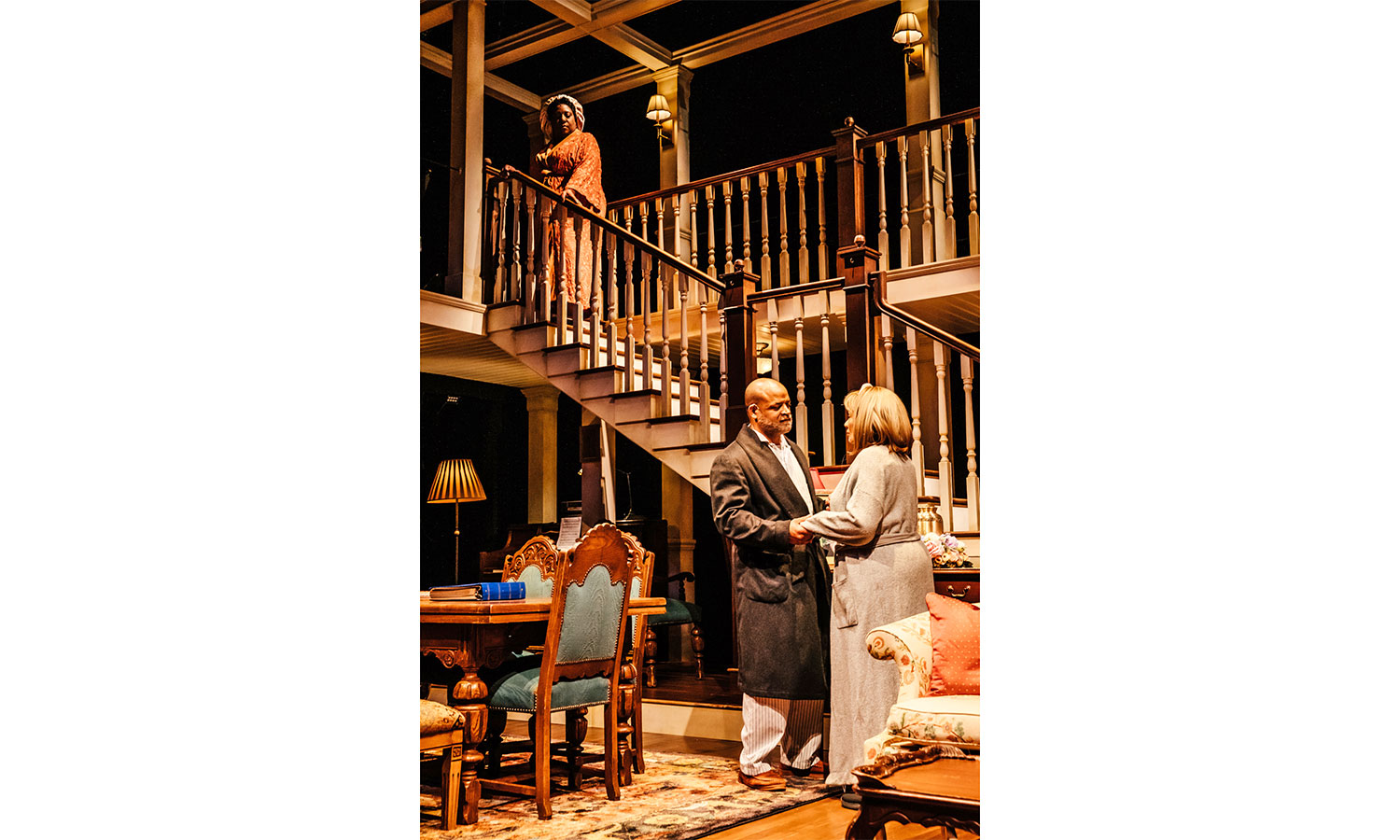
Neither parent spared the rod in raising these children and though now grown up, the fear is still in their eyes. Dee-Dee has been trying all her life to be seen, for herself and separate from her dead sister. It becomes apparent very early on that she was always second best and never had the support of either parent. Even today, in the fog of her disease, Ruth still calls out for Diane, never for Dee-Dee. But in some ways, it’s Dee-Dee who doesn’t see. Aunt Pearl understands her and Leslie, her boyfriend, truly sees who she is both in and out of the context of her dysfunctional family. He loves her unconditionally and doesn’t understand why that isn’t enough.
The Pastor is an unforgiving soul, an evangelical who views the world in black and white and the Bible as literal. The root of all evil, he sees little beyond the loss of the one twin and has no need to acknowledge the other. Albert IV was supposed to be his golden child, the heir to his pastoral throne. When that ended with his criminal conviction, his hopes shifted to AJ. Any racist animosity the siblings may have faced in the outside world paled in comparison to the hate they continue to face at home. Pastor Jones is laser-focused on his church. The adages “charity begins at home” and “do unto others” do not seem to have made it into his personal prayer book. His cruelty is difficult to watch. And, in one telling scene, a memorable Thanksgiving dinner that brings to mind the ugly cathartic dinner in Letts’ “August Osage County,” it would appear that the lucid Ruth was a match for her husband in vitriol and disapproval.
Colston has given each character their own platform to express pain, reveal secrets, and explain circumstances from their own perspective. Even Ruth, most of the time lost in a fog, has her own moments of lucidity that underscore the longings and frailties of the others. Their monologues blend seamlessly into the drama of the moment, and this is a play full to overflowing with drama.
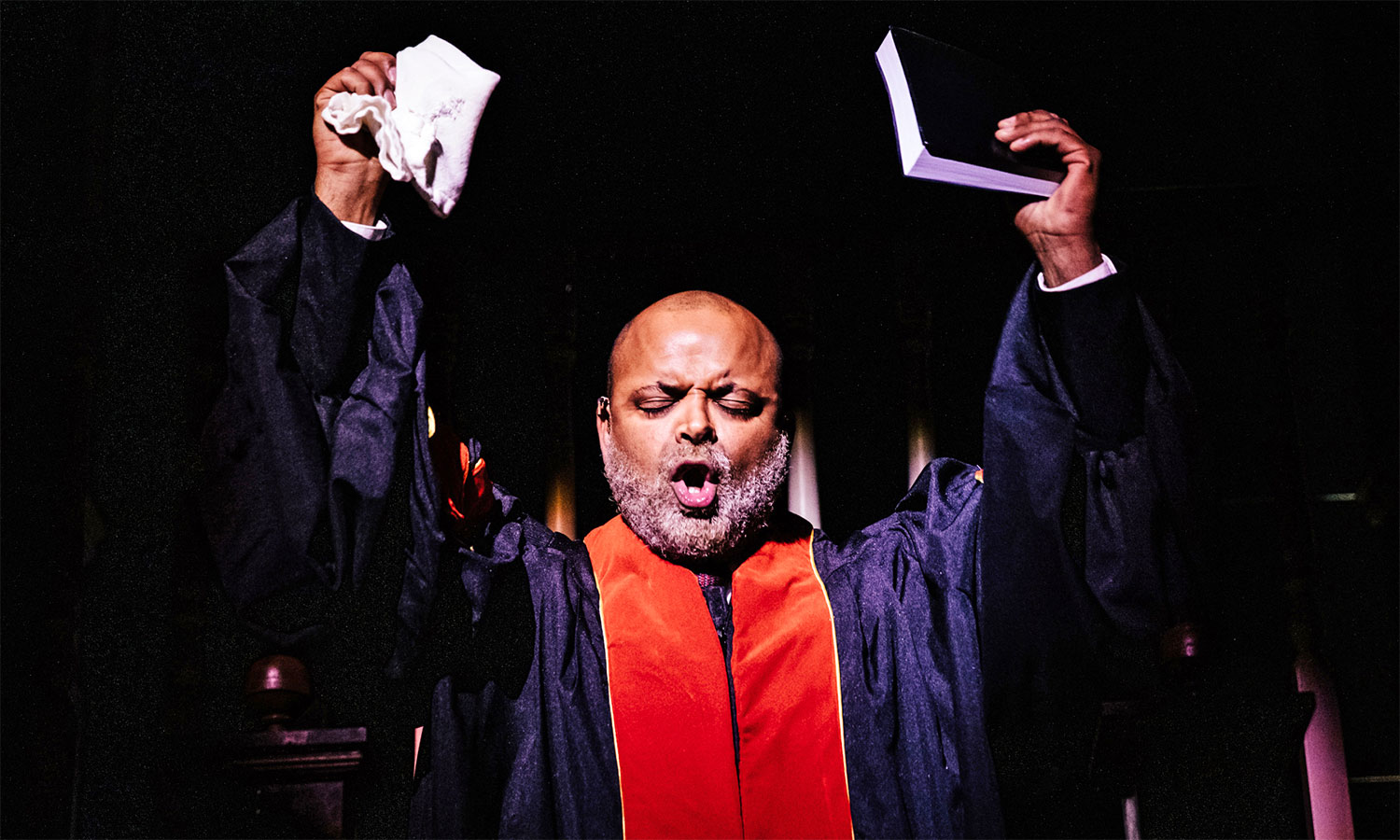
If I have been vague on what some of the cataclysmic events within the story, or more aptly, stories are, this is by design. Each character’s arc is a dramatic twist unto itself, none more dramatic than that of Albert IV. It would be unfair to reveal any and spoil the shock, surprise, and/or release tied to each and every one. Colston has masterfully piled one on top of another, balancing each so well that the story never topples over from the weight it carries.
That “The First Deep Breath” is located in Philadelphia is certainly no coincidence. Colston has, no doubt, set this up as an homage to August Wilson’s use of Pittsburgh. This is not to say that Colston is the new or even next August Wilson. There will never be another Wilson just like there will never be another O’Neil, Williams, or Miller. He has a ways to go to approach that group but he seems to be on that path, one paved with pitfalls and difficulties and rewards if his next plays are as good as this one. Colston’s plots are messy and his characters are rich, complex, and thoughtful, devoid of cliché, even if some of them are familiar. Aunt Pearl comes closest to stereotype. She’s loud and brash, a big woman who shakes like the proverbial jelly roll in the blues. But you’d be mistaken. As the play progresses, the protective layers begin to fall off revealing the vulnerable woman beneath. It is Pearl’s monologue that brings the house down with its self-awareness, despondency and resolute determination.
“The First Deep Breath,” beautifully directed by Steve H. Broadnax III, who directed the premiere of this piece in Chicago, benefits enormously from its cast, led by the playwright himself. Lee Edward Colston II plays Albert Melvin Jones IV, aka Abdul-Malik, a man whose secret put him in prison and kept him in one both before and after. Opa Adeyemo as AJ, is as warm, confused and rigid as any teenager who knows enough to keep his goals and dreams to himself even when he wants to share his joy. Herb Newsome as Pastor Albert is effective as the hellfire and brimstone villain, unforgiving of others even as he glosses over his own sins. Newsome eventually found a way to overcome the black mustachioed villain of his character to locate some humanity and vulnerability even if it was never offered to his children. He found a way to leaven his cruelty with a modicum of confusion. You still hate him, just not quite as much.
Keith Wallace as Tyree and Brandon Mendez Homer as Leslie are excellent even though their characters are primarily story pushers, building the bridge from one incident to another. Candace Thomas as Dee-Dee is somewhat problematic. She is a very good actress with a difficult role but is never as convincing as she needs to be. This may be due to her stature and the pitch of her voice. She is very petite, which wouldn’t necessarily be a problem but the tone is thin and her character’s journey demands strength and vocally she doesn’t have it. In the hands of a young LisaGay Hamilton (“The Piano Lesson” “Gem of the Ocean”), the role of Dee-Dee would have communicated the heartbreak and anger of a neglected child. Ella Joyce (Ruth) in her 20s would have been an excellent Dee-Dee. Thomas does not convey that kind of gravitas.
Ella Joyce as Ruth was outstanding, interpreting the heartbreak, confusion and anger of a woman with Alzheimer’s. It is easy to see where she fit into the family until she no longer did. Sympathetic, pathetic, empathetic, angry, Joyce employs all the colors of the emotions Ruth feels and those reflected back on her by the others.
If there is a star, and one can make an argument that all the roles have equal importance, it would be Deanna Reed-Foster as the irrepressible, outrageous, hilarious, and tragic Pearl, the only person living her life and owning her mistakes. Colston effectively uses her as the comic relief in what could have been a relentlessly sad and dramatic play, knowing full well that without humor he would have lost the audience early on.
Be forewarned, this is a very long play, weighing in at 3 hours and 45 minutes with 2 intermissions. That being said, there is not a single wasted moment and your investment in “The First Deep Breath” will pay off in dividends when you realize that this was one of those rare theater experiences that you will remember for a very long time. So take that first deep breath and reinvest in live theater at the Geffen.
Now playing at the Geffen Playhouse in the Gil Cates Theatre through March 5.
Performances 1 p.m. and 7 p.m. on Saturdays and Sundays; 7:30 p.m. Tuesday – Friday.
Neely Swanson spent most of her professional career in the television industry, almost all of it working for David E. Kelley. In her last full-time position as Executive Vice President of Development, she reviewed writer submissions and targeted content for adaptation. As she has often said, she did book reports for a living. For several years she was a freelance writer for “Written By,” the magazine of the WGA West and was adjunct faculty at USC in the writing division of the School of Cinematic Arts. Neely has been writing film and television reviews for the “Easy Reader” for more than 10 years. Her past reviews can be read on Rotten Tomatoes where she is a tomato-approved critic.



